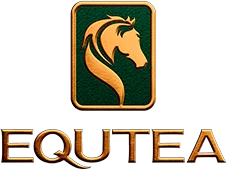Promote your horse's recovery with RECUTEC EQ
24/06/2023
What are electrolytes?
Electrolytes are the mineral salts found in sweat. Sweat is much more concentrated in electrolytes than blood, which means that if the horse sweats during exercise or transport, for example, it will lose a significant amount of these mineral salts.
The main electrolytes in sweat are sodium, chloride and potassium. Macro- and trace elements, such as calcium and magnesium, are also present in much smaller amounts.
The regulation mechanism is complex; without electrolytes, cellular hydration is impossible, which can lead to major metabolic disorders. This is why, in the event of a loss due to heavy sweating, the horse must replenish its mineral salt reserves.
What are the risks of dehydration and electrolyte deficiency?
Horses sweat a lot. They can lose up to 15 litres of sweat per hour during intense exercise in very hot weather. Water loss is 7 to 8 litres per hour in an endurance test in a temperate climate, the equivalent of 35 to 40 litres in a 5-hour test, which corresponds to 8% of the horse's body weight.
Even moderate water loss (2 to 4% of body weight) will have an impact on sporting performance.
The more the horse sweats, the more its mineral salt reserves are depleted. Loss of electrolytes can lead to dehydration. Severe dehydration compromises the sweating mechanism responsible for regulating body temperature, leading to hyperthermia.
Dehydration causes circulatory problems, as well as problems with energy metabolism (faster glycogen depletion and increased lactic acidosis). This can lead to rhabdomyolysis (myositis) or heat stroke. Electrolyte imbalance linked to heavy sweating favours these phenomena.
Signs of more severe dehydration are unsteady gait, uncoordinated muscle contractions, tremors and muscle weakness, increased temperature and lack of interest in water. The osmotic balance of the body's cells also depends on water intake. Water is necessary and must be offered at the same time as electrolytes. Therefore, the horse should always have free access to clean, fresh water so that it can quench its thirst whenever it feels the need.
What is the benefit of electrolyte supplementation?
An experiment (Dûsterdieck et al. 1999) studied the response of horses running the equivalent of a 60 km endurance race on a treadmill and offered water with or without electrolytes at different times during exercise. When the horses ran without electrolytes, they lost about 25 kg of sweat, offset by 13 litres of water ingested through voluntary consumption during exercise, or about half of what was lost. When they ran with an electrolyte supplement (a dose of sodium chloride distributed before and after the run), they drank 23 litres of water, enough to compensate for all the water loss, and started drinking earlier during exercise. Other tests showed that sodium supplementation tended to encourage horses to drink again. The sensation of thirst is stimulated by an increase in plasma osmolality. Drinking still water after sweat loss will dilute the sodium concentration and inhibit the sensation of thirst. With an initial salt-enriched watering, the plasma sodium concentration remains elevated and prolongs the sensation of thirst within minutes after the first intake of water.
How should electrolyte supplements be used?
Most of the time, a balanced diet, free access to clean, fresh water and the availability of a salt stone are sufficient to meet the horse's electrolyte needs.
Electrolyte-based supplements can be administered during exertion or in conditions that cause profuse sweating (exercise and transport in hot weather, exposure to extreme heat, stress). They mainly provide sources of sodium chloride (salt), potassium chloride, calcium, magnesium and certain trace elements.
EQUTEA RECOMMENDS RECUTEC EQ
RECUTEC EQ is a food supplement that supports muscular effort and favours the horse's recovery. It contains electrolytes and essential ingredients that guarantee a high energy density. The administration of RECUTEC EQ before work delays the onset of fatigue, acts on muscular power, cardiac output and cellular oxygenation. It contains no known substances on the FEI banned substances list.
Source:
Wolter. L'alimentation du cheval. La France Agricole, 2015.
R.J. Geor, P. Harris and al. Equine Applied and Clinical Nutrition. Saunders, 2013.
Kentucky Equine Research. What Are Electrolytes and Why Are They Important?


